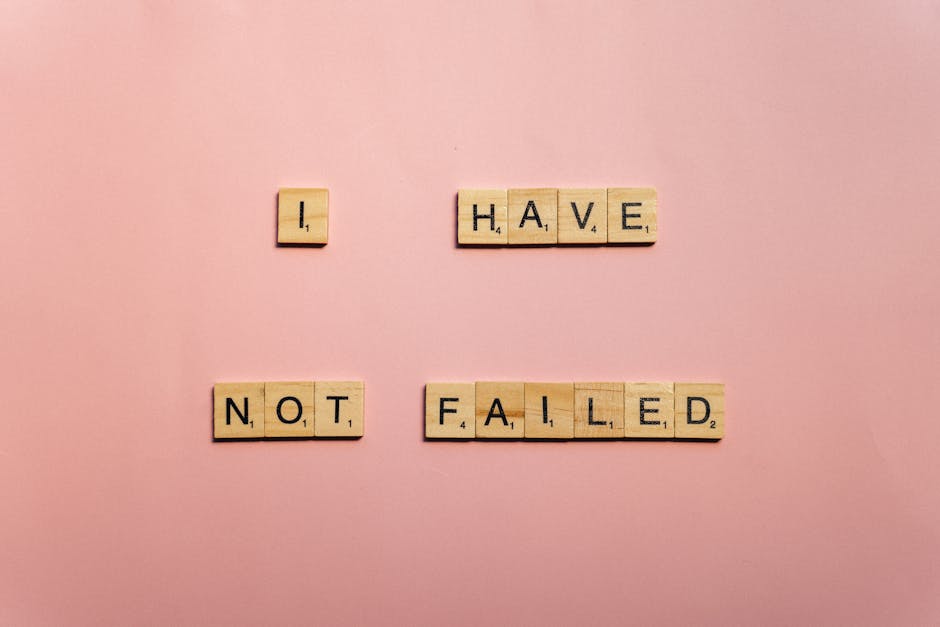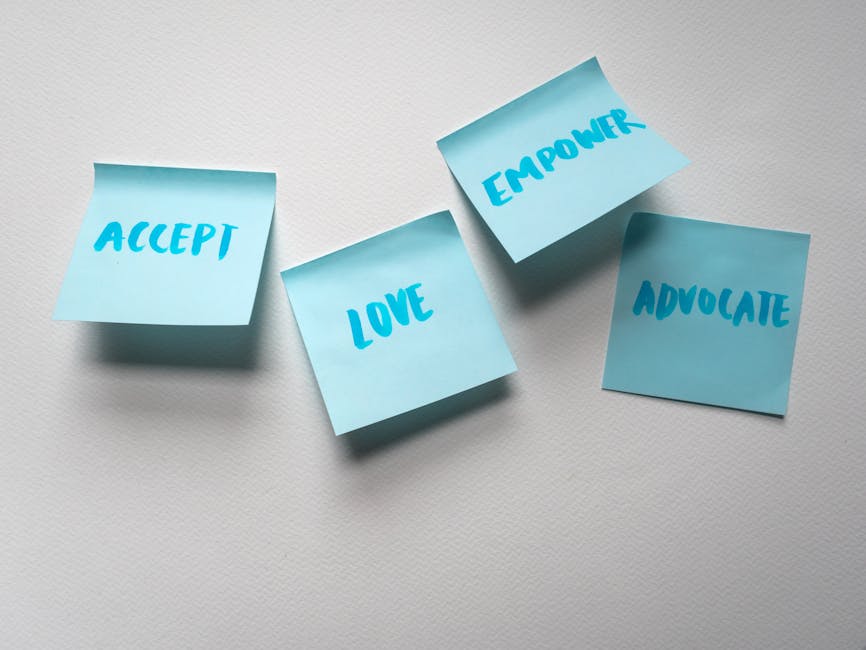How To Turn Fear Of Rejection Into Resilience?
Fear of rejection can feel like a heavy weight on your chest, holding you back from chasing your dreams or forming meaningful connections. But what if I told you that this fear could be transformed into a powerful tool for building resilience? Yes, you can turn rejection into a stepping stone rather than a stumbling block. Keep reading to discover how to shift your mindset, embrace rejection, and grow stronger with every “no” you encounter.
Key Takeaways
- Fear of rejection is a natural human response rooted in psychology.
- Rejection can teach valuable lessons and foster personal growth.
- Self-compassion and confidence are essential for overcoming rejection.
- Facing rejection head-on builds resilience and emotional strength.
Understanding the Fear of Rejection
The Psychological Roots of Rejection
Rejection isn’t just a modern-day struggle; it’s hardwired into our brains. Back in the caveman days, being rejected by your tribe could mean life or death. That primal fear still lingers, making rejection feel like a threat to our survival.
When someone says “no” to you—whether it’s a job application, a date, or an idea—it can trigger feelings of unworthiness. Your brain interprets rejection as pain, similar to physical injury. But here’s the kicker: this pain is temporary, and understanding its roots can help you manage it better.
How Fear of Rejection Impacts Mental Health
Fear of rejection can lead to anxiety, low self-esteem, and even depression. It’s like a snowball effect—one rejection can make you hesitant to try again, trapping you in a cycle of self-doubt.
But here’s the good news: resilience can break that cycle. By learning how to cope with rejection, you can protect your mental health and even thrive in the face of challenges.
The Connection Between Rejection and Resilience
Think of resilience as a muscle. Every time you face rejection and bounce back, you’re strengthening that muscle. Resilience isn’t about avoiding rejection; it’s about learning to recover and grow from it.

Acknowledging Rejection as a Part of Life
Normalizing Rejection in Personal and Professional Settings
Rejection happens to everyone. Even the most successful people—think Oprah, J.K. Rowling, or Michael Jordan—have faced countless rejections. The difference? They didn’t let it stop them.
In personal relationships, rejection might sting, but it’s not the end of the world. In professional settings, it’s often just a numbers game. The more you put yourself out there, the higher your chances of success.
Lessons Learned from Rejection Experiences
Every rejection carries a lesson. Maybe you need to refine your skills, adjust your approach, or simply find a better fit. Instead of seeing rejection as failure, view it as feedback.
For example, if you’re rejected after a job interview, ask for constructive criticism. This can help you improve and increase your chances next time.
Shifting Perspectives: Viewing Rejection as an Opportunity
Rejection can be a blessing in disguise. It pushes you out of your comfort zone and forces you to grow. Think of it as life’s way of redirecting you toward something better.

Building Resilience Through Self-Compassion
The Role of Self-Compassion in Overcoming Rejection
Self-compassion is your secret weapon against rejection. Instead of beating yourself up, treat yourself with kindness. Imagine how you’d comfort a friend—now, do the same for yourself.
Strategies for Practicing Self-Compassion
Positive Self-Talk
Replace negative thoughts with encouraging ones. Instead of saying, “I’m such a failure,” try, “This didn’t work out, but I’m learning and growing.”
Forgiving Oneself for Perceived Failures
Nobody’s perfect. Forgive yourself for mistakes and move forward. Remember, rejection doesn’t define your worth.
How Self-Compassion Fosters Emotional Strength
When you’re kind to yourself, you build emotional resilience. You become better equipped to handle setbacks and bounce back stronger.

Confronting Fear to Foster Personal Growth
Identifying and Addressing the Root Causes of Fear
What’s really behind your fear of rejection? Is it a fear of failure? A need for approval? Identifying the root cause can help you tackle it head-on.
Facing Rejection Head-On: Practical Steps
Gradual Exposure to Rejection Scenarios
Start small. Ask for a discount at a coffee shop or strike up a conversation with a stranger. These small acts can desensitize you to rejection over time.
Setting Realistic Expectations
Not every attempt will lead to success, and that’s okay. By setting realistic expectations, you can reduce the sting of rejection.
The Transformative Power of Stepping Outside Your Comfort Zone
Growth happens outside your comfort zone. Each time you face rejection, you’re expanding your boundaries and becoming more resilient.

Developing Self-Confidence to Manage Rejection
The Role of Mindfulness in Building Confidence
Mindfulness helps you stay present and focused, reducing anxiety about rejection. By practicing mindfulness, you can approach situations with a calm and confident mindset.
Techniques to Boost Self-Esteem
Celebrating Small Victories
Every small win counts. Did you apply for a job? Celebrate it, even if you don’t get the role.
Practicing Gratitude
Focus on what you have rather than what you lack. Gratitude can shift your perspective and boost your confidence.
How Self-Confidence Reduces the Fear of Rejection
When you believe in yourself, rejection loses its power. Confidence acts as a shield, protecting you from the emotional impact of rejection.

Overcoming Anxiety and Shame Associated with Rejection
Understanding the Link Between Rejection, Anxiety, and Shame
Rejection can trigger feelings of shame, making you question your worth. But these feelings are often based on distorted thinking rather than reality.
Reframing Negative Thoughts
Challenge negative thoughts by asking, “Is this really true?” Often, rejection says more about the other person or situation than it does about you.
Cultivating a Positive Mindset
A positive mindset doesn’t mean ignoring rejection—it means seeing it as a stepping stone rather than a roadblock.

The Importance of Unconditional Self-Acceptance
Why Self-Acceptance Is Key to Overcoming Rejection
When you accept yourself unconditionally, rejection loses its sting. You realize that your worth isn’t tied to others’ opinions.
Steps to Develop Unconditional Self-Acceptance
Embracing Imperfections
Nobody’s perfect, and that’s okay. Embrace your flaws—they make you human.
Letting Go of Societal Expectations
Stop trying to fit into a mold. Be true to yourself, and you’ll attract people and opportunities that align with your values.
How Self-Acceptance Improves Relationships
When you accept yourself, you’re more likely to form healthy, authentic relationships. You’ll stop seeking validation from others and start valuing yourself.
Leveraging Support Systems and Therapy
The Role of Friends and Family in Building Resilience
Your support system can be a lifeline during tough times. Lean on friends and family for encouragement and perspective.
How Online Therapy Can Help Address Rejection Fears
Therapy can provide tools and strategies for managing rejection. Platforms like BetterHelp offer accessible options for those seeking professional help.
Finding the Right Resources for Emotional Support
Books, podcasts, and online communities can also be valuable resources. Explore options that resonate with you and your journey.

Rejection is inevitable, but it doesn’t have to define you. By embracing rejection, practicing self-compassion, and building resilience, you can turn fear into strength. Remember, every “no” brings you closer to the “yes” that’s meant for you.
For more tips on building resilience, check out this guide or explore techniques for improving emotional resilience. Keep growing, keep learning, and never let rejection hold you back.
FAQ: Transforming Fear of Rejection into Resilience – Your Guide to Growth and Confidence
What is the fear of rejection, and why does it affect so many people?
The fear of rejection is an emotional response to the possibility of being excluded or dismissed by others. It stems from our innate need for social connection and acceptance. Many people experience it because rejection triggers feelings of inadequacy or unworthiness, which can be deeply rooted in past experiences or societal pressures.
How can I identify if my fear of rejection is holding me back?
Signs include avoiding opportunities, overthinking social interactions, or feeling paralyzed by the thought of failure. If you frequently say no to challenges or hesitate to express your needs and desires, your fear of rejection might be limiting your personal or professional growth.
What are some practical steps to overcome the fear of rejection?
Start by reframing rejection as a learning opportunity rather than a personal failure. Practice self-compassion, set realistic expectations, and gradually expose yourself to situations where rejection is possible. Building resilience takes time, but consistent effort can help you manage and reduce this fear.
How does rejection contribute to building resilience?
Rejection, when approached with the right mindset, can teach valuable lessons about perseverance, adaptability, and self-worth. Each experience helps you develop emotional strength and equips you to handle future challenges with greater confidence.
Can mindfulness or meditation help with the fear of rejection?
Yes, mindfulness and meditation can be powerful tools. They help you stay present, reduce overthinking, and cultivate self-awareness. By practicing mindfulness, you can better manage the emotional responses triggered by rejection and focus on constructive actions instead.
What role does self-esteem play in overcoming the fear of rejection?
Self-esteem is crucial. When you value yourself, rejection feels less personal and more like a natural part of life. Building self-esteem involves recognizing your strengths, celebrating small victories, and surrounding yourself with supportive people who uplift you.
Are there any common misconceptions about rejection?
One common misconception is that rejection defines your worth or abilities. In reality, rejection is often situational and not a reflection of your value. Another myth is that avoiding rejection entirely is possible, but growth often requires taking risks and facing potential setbacks.
How can I help someone else struggling with the fear of rejection?
Offer empathy and encouragement. Listen to their concerns without judgment and remind them that rejection is a shared human experience. Encourage them to focus on their strengths and support them in taking small, manageable steps toward confronting their fears.
What are some examples of famous people who turned rejection into resilience?
Many successful individuals, like J.K. Rowling and Oprah Winfrey, faced significant rejection before achieving their goals. Their stories highlight the importance of perseverance and viewing rejection as a stepping stone rather than a roadblock.
How long does it take to turn the fear of rejection into resilience?
The timeline varies for everyone, depending on factors like past experiences and the effort invested in personal growth. With consistent practice and a positive mindset, many people notice improvements within weeks or months. The key is to stay patient and committed to the process.



